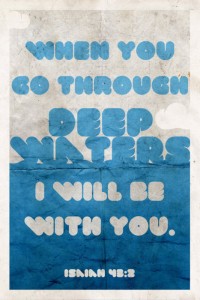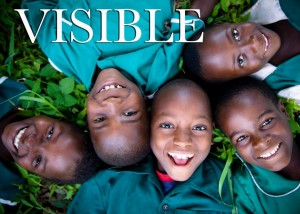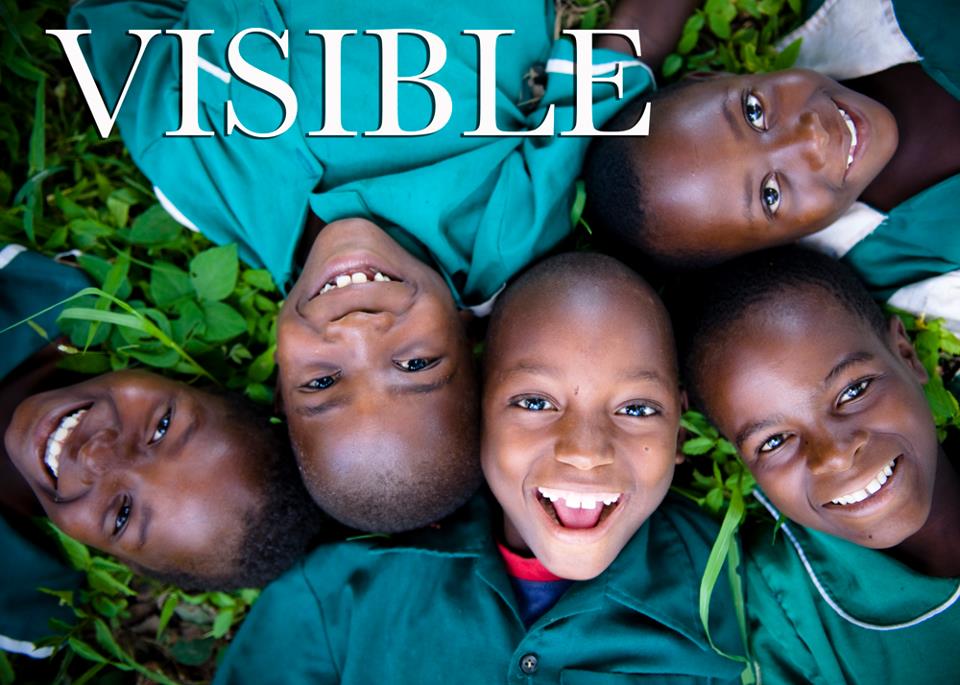I won’t share the video that many of my fellow bloggers reacted to today. Because of its slick production value, Invisible Children’s Kony2012 campaign will get plenty of attention without a link from me.
I did attempt to watch the whole video, but I have to confess that I stopped when Invisible Children’s founder asks his 3-year-old to explain who the “bad guys” are and what daddy does, i.e. he goes after them. The simplistic narrative of heroes and villains – this, among other things, has always been a big concern with Invisible Children’s work. How well has the bad guys vs. good guys paradigm ever really served the world?
The most disturbing part of the film is an intensely emotional moment in the film when a Ugandan young man, Jacob, breaks down and the narrator (the founder) promises to help. It’s heartbreaking for me. Not only because of Jacob’s story of how much he misses his slain brother (though the intimacy of that moment makes me really wonder if we should be watching at all), but more so the founder’s inability to just “stay” with Jacob in that dark, low, hard moment.
Instead, he jumps in and assures him that he will fix it.
He can’t handle the discomfort of that situation and so makes a promise to Jacob to change his life, to alter a history-laden, deeply entrenched socio-economic-political conflict, which he at that moment presumably knows very little about. He may have been inspired to “do something,” but nothing that he or his organization can ever do will ever bring back Jacob’s brother. That may sound harsh and even cynically cruel to some, but I think it’s important to recognize that true compassion occurs when we don’t fight or dismiss sadness. The narrator’s inability to tolerate Jacob’s despair, actually lets despair win.
Watching the video really brought home this article recommended by @mindfulaidwork today, “The Importance of Sadness.” It may help explain why Invisible Children remains so popular among the public. They conjure up a horrible situation, only to let us distance ourselves from the difficult emotions it inevitably brings forth by creating a shallow sense of empowerment, that is, enabling us to believe that we can change the course of another country’s history. It’s a Hollywood blockbuster, the ultimate gaming experience, and we’re the heroes.
Don’t get me wrong. I’m unashamedly hopeful about the ability of humans to change their own situations. But the events of the Arab Spring certainly remind us that lasting change must come from within.
 The Invisible Children founder’s real job in that moment was not to solve Jacob’s problem. Aid workers, do-gooders, that goes for us too. We have an immense responsibility to handle these situations with care because our presence as outsiders can and often does provide opportunities for people to tell their stories, often of suffering. It takes effort to cultivate and hone our ability to carry this burdensome, sacred role and work hard not to project or protect our feelings over another’s. But in my experience, simply “being there” can help people reconnect to their hope when it seems lost.
The Invisible Children founder’s real job in that moment was not to solve Jacob’s problem. Aid workers, do-gooders, that goes for us too. We have an immense responsibility to handle these situations with care because our presence as outsiders can and often does provide opportunities for people to tell their stories, often of suffering. It takes effort to cultivate and hone our ability to carry this burdensome, sacred role and work hard not to project or protect our feelings over another’s. But in my experience, simply “being there” can help people reconnect to their hope when it seems lost.
I am the first to say that it’s tough to do this well. I certainly don’t doubt the strength of the connection between Jacob and Invisible Children’s founder. But what the founder could have done better during his moment of inspiration was to simply acknowledge Jacob’s deep sadness and assure Jacob of his own inner strength. Ideas for change can come later. Instead, what the founder doesn’t realize is that he is pushed Jacob’s feelings away and offered him reliance on a white man to solve his problems.
For a more grounded and humble approach to outsider “advocacy” on other countries’ internal social justice issues, I recommend checking out the Africa Canada Accountability Coalition at the University of British Columbia. They provide platforms for Canadians to take a critical and thoughtful approach to advocacy in general through their “So you want to save Africa” workshops, as well as through policy recommendations for Canada’s involvement in the Great Lakes region. Currently, they are working on a research-based policy paper that will stress the social and, ultimately, economic benefits of investing in local initiatives.
Now that’s the movie I want to see.

***
Related Posts
Don’t change the message. Change the messenger.
Reaching Girls at the Grassroots – A Sound Investment (Part 1)


Pingback: Someone is WRONG on the Internet | erininjuba
Thanks for sharing your insights , as you obviously have a lot of first hand experience on the topic. While I think the cause might be a good idea, sharing or perpetuating a movement without knowing the real viewpoint, and thinking in overly simplistic terms will not solve anything. Furthermore, sometimes these kind of things will do more harm than good. I really think that the only way to find solutions to the world’s problems are through grassroots efforts empowering the communities themselves. While he is a war criminal, child soldiers are a prevalent and all too real problem worldwide. We need to go deeper and find what is causing this, because otherwise there are a million more Kony’s popping up. In El Salvador, the kids were recruited to be child soldiers and guerrilas. All they knew was war. They were given sanctuary to the United States thinking it would ” Save ” them. Well, fast forward 20 years later and there are gangs and violence a direct by product of all this.
I talk more on these issues on charity on my post :
http://wingeyes.wordpress.com/2012/03/05/i-dont-believe-in-charity/
I’ve tried to break down my thoughts on Invisible Children and Kony 2012 in my blog. Go to the link below to check it out. I’d love your feedback,
http://jgaynor.com/2012/03/08/i-stand-with-invisible-children/
Pingback: A Ugandan reflection on the Kony 2012 campaign | Insight on Conflict
Pingback: A Ugandan reflection on Kony 2012 | Peace Direct
Pingback: A Ugandan reflection on Kony 2012 | Peace Direct
Where to begin.
Plenty of people have plenty to say about this issue, and I could probably go on for hours, but I’ll focus only on one point:
You seem to take issue with the narrator (Jason) telling Jacob, the crying boy, that he will “fix” it and “do something” instead of just consoling the boy’s despair.
You are obviously a girl, and I mean no disrespect in saying that.
The simple fact is that women are much more capable of consoling; it’s a motherly instinct.
Men and hard-wired to always try to “fix” things. That goes from broken locks to broken hearts.
Ladies, plenty of fights with your boyfriends have been because sometimes when you complain about your boss or your mother or whatever, he keeps trying to jump in with solutions because he is a fixer, when you just needed him to listen to you vent.
Of course Jason can never bring Jacob’s brother back and he will never truly “fix” it. But don’t blame him for his nature of truly wanting to.
Cheers
Jody
Pingback: Weekend Reading: #KONY2012 Edition « Backslash Scott Thoughts
Pingback: gravity | anya in italia
Thanks for this post. This whole thing seems like propaganda to keep US troops in Uganda and send more arms to its military. Help the victims of war by fuelling militarism? In my view that IC’s campaign will lead to a lot more suffering — the exact opposite of what its naïve donors think. I suspect the IC founders are not so naïve, they strike me as slime.
Pingback: Why I don’t support the Kony2012 campaign « Graduate in Africa
Pingback: What Kony 2012 has to do with my book: this week’s round up | Marianne Elliott
“If stories come to you, care for them. And learn to give them away where they are needed. Sometimes a person needs a story more than food to stay alive.” ~Barry Lopez
Pingback: #Kony2012 show « PRACowniA
Pingback: Art, Empathy, and Kony « ArtQuake
Pingback: Finding the Good in Kony 2012 | ACAC
Pingback: Uganda: 5th post | T.X. Watson's Blog Thingy
Jennifer, I love your last line:
“If stories come to you, care for them. And learn to give them away where they are needed. Sometimes a person needs a story more than food to stay alive.” ~Barry Lopez
It’s so true. Being lucky enough to listen to people’s stories for the past 5 years of my life has been a privilege. If the focus of the film would have been on Jacob’s life or other children affected by the conflict, it would have given space to amplify their voices, their viewpoints and understanding of the situation. That would have been a much better advocacy tool, while also giving them space to share their stories.
Pingback: T.X. Watsons World History Exploration - Uganda: 5th post | T.X. Watson’s Blog Thingy
Pingback: Se repetirá la historia de Libia en Uganda ésta vez sin la necesidad de Alqaeda :: MedellinStyle.com
Pingback: A take on #Kony2012 I wholeheartedly agree with | Newsballs
Pingback: A Ugandan reflection on Kony 2012 » Peace Direct USA
Pingback: A Ugandan reflection on Kony 2012 » Peace Direct UK
Pingback: A Ugandan reflection on Kony 2012 » Peace Direct
Pingback: You Don't Have My Vote: On Invisible Children's #Kony2012 - Urban Cusp
Pingback: PTSD is not the problem. Burnout is. | Mindfulnext
Pingback: Who Is Joseph Kony & Why Is Everyone Talking About Him? - JohnVantine.com
Pingback: Could we create an Ice Bucket Challenge for global development? Should we?
Pingback: The #Kony2012 show | Africa is a Country
Pingback: Invisible Children – Pretty Dang Visible | The Duck of Minerva